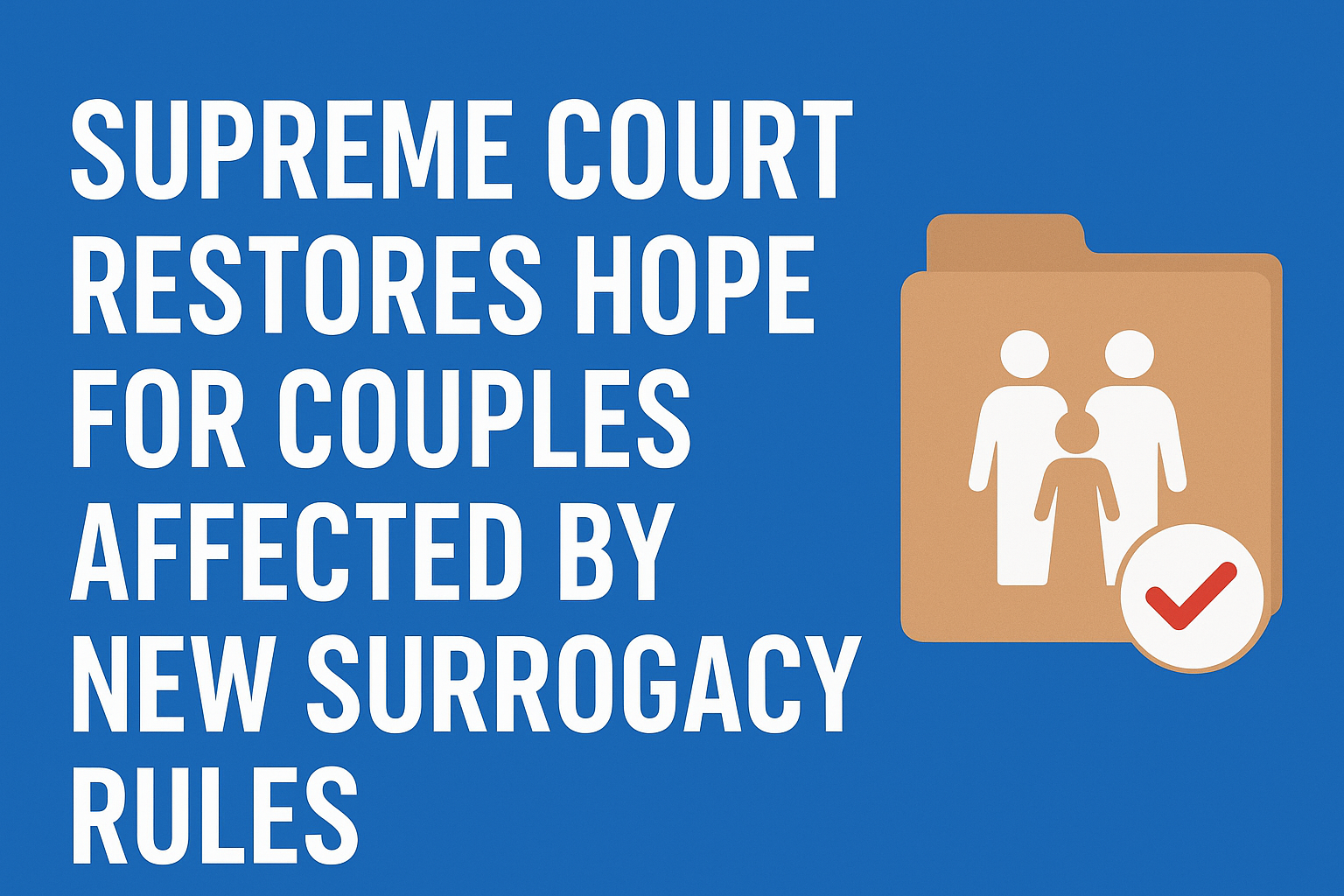
The Supreme Court of India has given a much-needed reprieve to several couples who were caught in legal uncertainty after the government introduced stricter age limits for intending parents under the amended Surrogacy (Regulation) Rules, 2021. The court ruled that these new age restrictions will not apply retrospectively, ensuring that couples who had already begun the surrogacy process before the rule came into force can continue without disruption.
The ruling came after multiple petitions were filed by couples who had completed essential medical and legal steps toward surrogacy but were later deemed ineligible due to the revised age criteria. Under the amended rules, the permissible age for women opting for surrogacy was set between 23 and 50 years, and for men between 26 and 55 years. This change had placed many prospective parents, some of whom had frozen embryos or signed surrogacy agreements, in a painful state of uncertainty.
A bench comprising Justice B.V. Nagarathna and Justice Augustine George Masih observed that laws must not operate in a manner that penalizes individuals for actions that were lawful at the time they were undertaken. The judges said it would be unfair to apply the new criteria to those who had already taken irreversible steps to start their surrogacy journey. They emphasized that the rule should only apply prospectively, protecting the rights of couples who acted in good faith under the earlier law.
The court’s decision was guided by the broader principle of fairness and compassion. It acknowledged that surrogacy is not merely a procedural arrangement but a deeply emotional process that represents hope for couples struggling with infertility. Denying them the right to become parents because of a rule change, the court said, would amount to grave injustice.
Many couples had invested significant time, money, and emotion into the process before the amendment took effect. Fertility clinics and medical professionals also faced confusion over whether to continue such cases. The judgment has now brought clarity and relief, allowing ongoing procedures to resume without fear of legal backlash.
The Union government, while defending the amendments, had stated that the revised rules were introduced to prevent exploitation and to regulate the surrogacy ecosystem in a more ethical way. However, the court noted that the intention of safeguarding women and children must not override the legitimate expectations of those who had already started their parenthood journey under the previous norms.
Legal experts have welcomed the verdict, calling it a balanced approach that protects both ethical concerns and personal rights. They observed that the judgment reinforces the fundamental legal principle that laws should be applied prospectively unless clearly intended otherwise. It also highlights the court’s growing sensitivity toward reproductive rights and the emotional realities of couples facing infertility.
The ruling is expected to impact numerous families across India who were affected by the abrupt change in regulations. It provides assurance that the law will not turn back on those who relied upon it in good faith. Fertility clinics can now proceed with cases that had been put on hold, while couples who had nearly lost hope can continue their pursuit of parenthood with renewed confidence.
Beyond immediate relief, the decision serves as an important reminder that policymaking in sensitive areas like reproduction must be guided by empathy, clarity, and foresight. Regulation is necessary to curb misuse, yet it should not extinguish the genuine hopes of law-abiding families.
For hundreds of couples who had been anxiously waiting, the Supreme Court’s judgment is not merely a legal victory. It is a reaffirmation that the law, at its best, stands to protect human dignity and the most personal dreams like having a child.





















